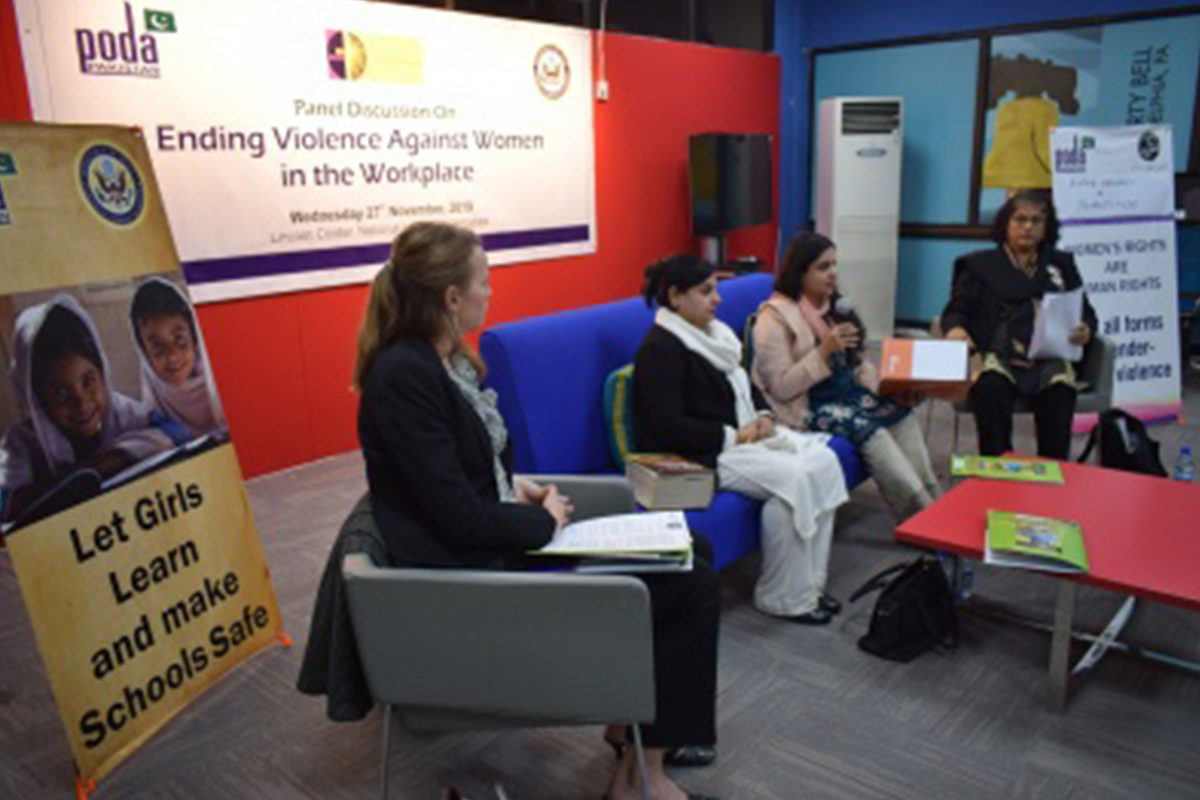
27th November 2019 (Islamabad): “We welcome adoption of ILO Convention C-190 on ‘Ending Violence and Harassment of Men and Women in the World of Work’ and call for ensuring its effective implementation in Pakistan through proper mechanisms and required resources,” said Dr. Zarina Salamat, Chairperson Council of Social Sciences at a seminar held at Lincoln Corner at National Library Islamabad.
The seminar was organized by PODA-Pakistan, a women’s rights organization, and the Public Affairs Section of the U.S. Embassy Islamabad to observe 16 Days of Activism to End Gender-Based Violence. 50 lawyers, teachers, students, members of civil society organizations, and concerned citizens attended the seminar.
Ms. Aqsa Khan, Manager Gender Diversity & Inclusion, Care International, Pakistan office said that the government of Pakistan played a very positive role in the adoption of ILO Convention C-190. She said that an important feature of this new Convention adopted in June 2019 by 187 governments around the world is that it includes protection from violence and harassment for both men and women workers. The next important step is to make implementation mechanisms to ensure that Pakistanis are able to use this law.
Ms. Sameena Nazir, the President of PODA, said that a major problem is that our laws are based on a colonial legacy that focuses on controlling the citizen instead of providing them protection or services. She said that when women in Pakistan have worked very hard to resist anti-women laws and now there are good laws that need implementation and we all must work together to protect women and girls.
Advocate Hifza Bukhari said that Pakistan has many laws for the protection of women such as a 2010 Anti-Sexual Harassment law but the court system is not women-friendly and often victims face more victimization in the courts. She said that another problem is the mindset of the people and lack of awareness about women’s rights in society. She said that the family courts in Pakistan are providing timely relief to women litigants especially in child custody.
Monica Davis, Assistant Information Officer at the U.S. Embassy Islamabad spoke about “unconscious bias,” sharing examples and underscoring the importance of being conscious of our own personal biases, so we can avoid discrimination on the basis of appearance, gender, education, or social status.
The participants of the seminar appreciated the information provided and asked several follow-up questions. One participant said that as a transgender woman, she faces sexual harassment even while walking on the road and asked if there a law that protects transgendered women from harassment and violence. Another participant said that the laws will only work when the citizens will push for justice and make the court system work. The seminar ended with a musical tribute to the courage of Pakistani women by classical performer Asfandyar Khattak.
